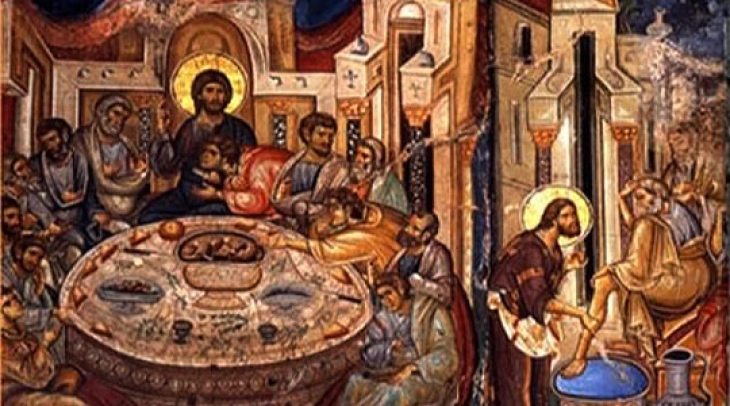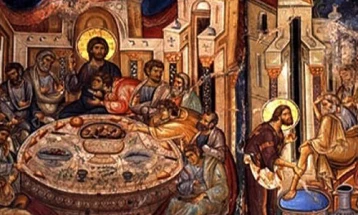Religious calendars
- Macedonian Orthodox Church Calendar; Holy Great-Martyr Artemios

2 November 2024 (MIA)
Macedonian Orthodox Church Calendar
Holy Great-Martyr Artemios
The Holy Great-Martyr Artemios of Antioch (+362) was a prominent military leader during the reigns of the Holy Equal-to-the-Apostles Emperor Constantine the Great (306-337), and his son Constantius (337-361). Artemios received many awards for distinguished service and courage. He was appointed viceroy of Egypt and in this official position he did much for spreading and strengthening Christianity in Egypt. Emperor Constantius was succeeded on the throne by Julian the Apostate (361-363). Julian in his desire to restore paganism was extremely antagonistic towards Christians. He blamed Christianity for the decline of the Roman Empire. He sent hundreds to their death. At Antioch he ordered the torture of two bishops unwilling to forsake the Christian faith. Coincidentally, St. Artemios arrived in Antioch from Egypt and publicly denounced Julian for his impiety. The enraged Julian subjected the saint to terrible tortures and threw the Great-Martyr Artemios into prison. While praying; Christ, surrounded by angels, appeared to Artemios and said, “Take courage, Artemios! I am with you and will preserve you from every hurt which is inflicted upon you, and I already have prepared your crown of glory. Therefore as you have confessed Me before the people on earth, so also shall I confess you before My Heavenly Father. Therefore, take courage and rejoice, you shall be with Me in My Kingdom.” Hearing this, Artemios rejoiced and offered glory and thanksgiving. On the following day Julian demanded that the Great-Martyr honor the pagan gods. Meeting with steadfast refusal, the emperor resorted to further torture. The saint endured all without so much as a single moan. The saint told Julian that he would be justly recompensed for his persecution of Christians. Julian became furious and resorted to even more fiercesome tortures, but they did not break the will of the saint. Finally the Great-Martyr Artemios was beheaded (+362). His remains were buried by Christians. After the death of the Holy Great-Martyr Artemios, his prophecy about the impending perishing of Julian the Apostate came true. Julian left Antioch for a war with the Persians. Near the Persian city of Ctesiphon, Julian came upon an elderly Persian, who agreed to betray his countrymen and guide Julian’s army. The old man deceived Julian and led his army into the Karmanite wilderness, where there was neither food nor water. Worn down by hunger and thirst, Julian’s Greco-Roman army battled against fresh Persian forces. Divine retribution caught up with Julian the Apostate. During the battle he was mortally wounded by an unseen hand and an unseen weapon. Julian groaned deeply said,”You have conquered, Gallilian!” After the death of the apostate-emperor, the relics of the Great-Martyr Artemios were transferred with honor from Antioch to Constantinople.
Catholic Calendar
All Souls’ Day
Christians have prayed for the dead in Purgatory from very early times, believing that, in the words of Amalarius in the ninth century, ‘many pass out of this world without at once being admitted into the company of the blessed.’ For this reason, it came to be accepted that the commemoration of all the faithful departed should take place on the day following that of all the saints. The custom of devoting a special day to prayer for departed brothers and benefactors was widespread in monasteries of the western church by the seventh century; but it was St Odilo, abbot of Cluny, who decided in about 998 that in Cluniac monasteries all the faithful departed should be commemorated on the day after the feast of All Saints. This Cluniac custom slowly spread and was general by the fourteenth century. All Souls’ day has had its own office since 1913.







